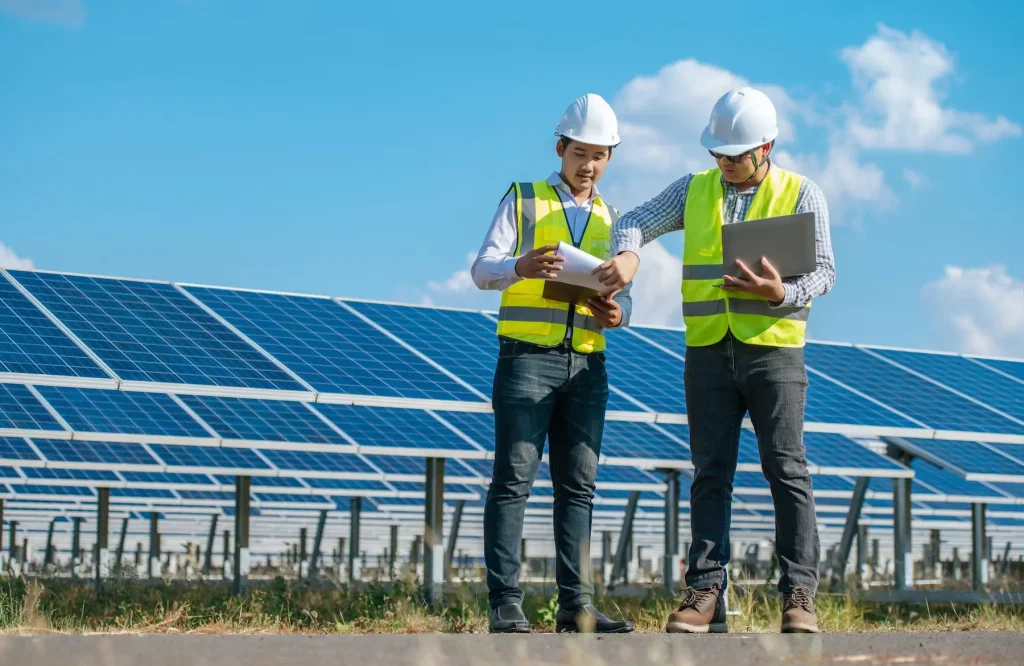Are Solar Panels Worth Investing in Singapore? Pros and Cons to Consider

Solar energy is gaining popularity as an alternative energy source in Singapore, as the city-state aims to reduce its carbon footprint and increase sustainability. However, many people are still uncertain about the value of installing solar panels in their homes or businesses. In this article, we will explore the pros and cons of using solar energy in Singapore to help you decide if it is worth it for you.
Pros of Using Solar Panels in Singapore:

Reduced Energy Costs:
One of the main advantages of installing solar panels in Singapore is that they can significantly reduce your energy bills. By generating your own electricity, you can avoid paying high prices for traditional electricity sources.
Environmental Benefits:
Singapore is committed to reducing its carbon footprint and increasing sustainability. By using solar panels, you can contribute to this goal by reducing your reliance on non-renewable energy sources and decreasing your carbon emissions.
Government Incentives:
To promote eco-friendliness and support green initiatives, various government bodies offer financial incentives for solar panel installations in Singapore.
Metering Credit Schemes
Metering Credit Schemes are billing services that provide credits to owners of solar panels for any surplus power generated by their systems.
Simplified Credit Treatment (SCT) Scheme
The SCT Scheme is specifically designed for non-contestable households (under SP Group). Under this scheme, you will receive compensation for any excess energy generated by your solar panels based on the prevailing tariff rates, which amounts to approximately 75% to 80% of your electricity bill.
Enhanced Central Intermediary Scheme (ECIS)
If your solar capacity is less than 10 MWac, you are eligible for the ECIS. Through this scheme, any surplus energy produced by your solar panel will be reimbursed at the prevailing half-hourly wholesale energy prices.To learn more click on
Increased Property Value:
Installing solar panels can increase the value of your property by making it more attractive to potential buyers who are interested in sustainable living.
Cons of Using Solar Panels in Singapore:
High Upfront Costs:
The cost of installing solar panels in Singapore can be high, which may deter some people from investing in them. However, the long-term savings can often outweigh the initial investment.
Dependence on Weather:
The amount of energy generated by solar panels depends on the weather conditions, particularly the amount of sunlight received. Singapore’s tropical climate provides plenty of sunlight, but there may still be days when there is not enough sun to generate adequate power.
Maintenance and Repairs:
Solar panels require regular maintenance and occasional repairs to keep them functioning at optimal levels. This can be an additional cost to consider when weighing the value of solar energy.
Limited Lifespan:
Solar panels have a limited lifespan and may need to be replaced after 25-30 years. This can add to the overall cost of using solar energy.
The ROI Calculation
Calculating the ROI involves a few steps:
- Calculate the Initial Investment: Add up all the costs associated with the installation.Initial Investment=Cost of Panels+Cost of Inverter+Installation Costs+Miscellaneous Costs
- Calculate Annual Energy Savings: Multiply your monthly energy savings by 12.Annual Energy Savings=Monthly Energy Savings×12
- Factor in Government Incentives: Subtract any grants or rebates from the initial investment.Adjusted Initial Investment=Initial Investment−Government Incentives
- Calculate Annual ROI: Divide the annual energy savings by the adjusted initial investment and multiply by 100 to get a percentage.Annual ROI=(Annual Energy SavingsAdjusted Initial Investment)×100
Case Study: A Singaporean Household
Let’s consider a hypothetical case of a Singaporean household that installs a solar panel system costing SGD 20,000. They save an average of SGD 100 per month on their electricity bill and receive a SGD 2,000 grant from the government.
- Initial Investment: SGD 20,000
- Monthly Energy Savings: SGD 100
- Annual Energy Savings: SGD 100 x 12 = SGD 1,200
- Government Incentives: SGD 2,000
- Adjusted Initial Investment: SGD 20,000 – SGD 2,000 = SGD 18,000
- Annual ROI: (1,20018,000)×100=6.67
In this case, the household would have an annual ROI of 6.67%.
The Time Factor: Payback Period
Another crucial aspect to consider when calculating ROI is the payback period. This is the time it takes for your solar panel system to pay for itself through energy savings and government incentives.
Case Study Continued: Payback Period
Continuing with our hypothetical Singaporean household:
- Adjusted Initial Investment: SGD 18,000
- Annual Energy Savings: SGD 1,200
In this case, the household would take 15 years to recoup the initial investment through energy savings and government incentives.
Additional Benefits: Increased Property Value
Solar panel installations can also increase the value of your property. According to studies, homes with solar panel systems sell 20% faster and for 17% more money. While these figures may vary in the Singaporean context, the trend is clear: solar energy is an attractive feature for homebuyers.
Hidden Costs: Degradation Rate
Solar panels degrade over time, which means they become less efficient at converting sunlight into electricity. The average degradation rate is about 0.5% per year. While this may seem small, it can add up over the years and affect your ROI calculations.
Conclusion
Calculating the ROI of your solar panel investment involves multiple variables, including initial costs, energy savings, government incentives, and even the time value of money. However, the long-term benefits often outweigh the initial investment, especially in a sunny country like Singapore with its various solar incentives.
By understanding how to calculate ROI, you can make an informed decision and contribute not just to your household’s financial health but also to Singapore’s sustainability goals.
Frequently Asked Questions (FAQs):
How much can I save on energy costs by using solar panels in Singapore?
The amount of savings will depend on various factors, such as the size of your solar panel system and your energy usage. However, most households can save up to 50% on their energy bills by using solar energy.
How long does it take to recoup the cost of installing solar panels in Singapore?
The payback period for solar panels in Singapore typically ranges from 5-10 years, depending on the size of the system and the amount of energy generated.
Is it necessary to have a south-facing roof to install solar panels in Singapore?
While a south-facing roof is ideal for generating maximum solar power, solar panels can still be installed on other roof orientations, such as east or west-facing roofs.
Do I need special permission to install solar panels in Singapore?
You may need to obtain permission from your building management or the authorities before installing solar panels in Singapore. It is best to check with the relevant authorities before proceeding with installation.
Conclusion:
Solar energy has numerous advantages and disadvantages to consider when deciding whether to install solar panels in Singapore. While the upfront costs can be high, the long-term savings and environmental benefits can make it a worthwhile investment. With the Singapore government’s incentives and the city-state’s ample sunlight, using solar energy may be a smart choice for those looking to reduce their carbon footprint and save on energy costs.
